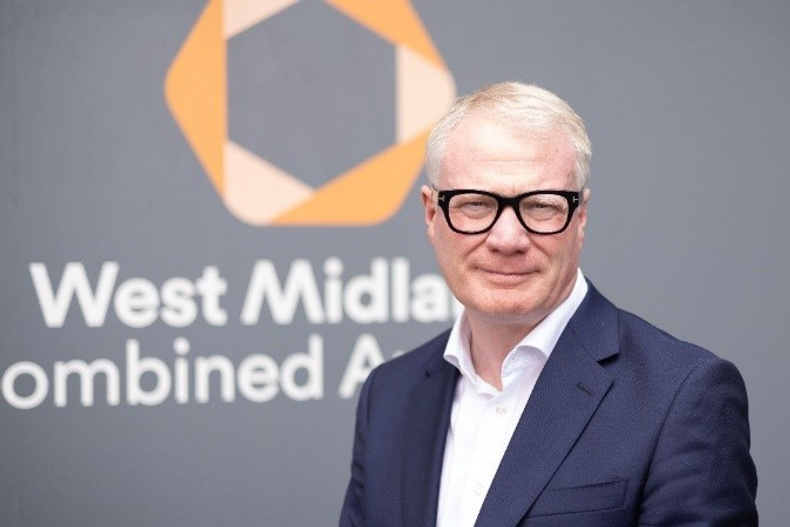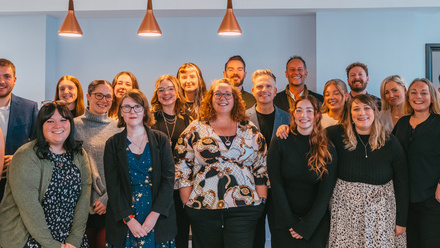New report forecasts 100,000 extra jobs in the West Midlands by 2035

A major new economic report shows that the West Midlands has the potential to create nearly 100,000 new jobs and deliver an extra £6.5 billion to the UK economy annually by 2035 - cementing its role as one of the most important regions in the UK.
The independent report, commissioned by the Universities of Warwick and Birmingham ahead of the West Midlands Regional Growth Plan, which will be launched by mayor Richard Parker (pictured) in June, sets out a compelling vision of economic renewal grounded in the region’s strengths in advanced manufacturing, green energy, electric vehicles, logistics, professional services and digital innovation.
Under two realistic scenarios, modelled using global examples from regions like Saxony, Lille and Porto, the analysis predicts:
- Up to 99,000 additional jobs across key industries, nearly double current projections.
- Growth outpacing the UK average, reversing a decade-long trend of regional underperformance.
- A £6.5 billion increase in annual growth, generated through focused investment in high-productivity sectors.
The report shows how every West Midlands local authority has a role to play in driving this economic transformation:
- Birmingham leads nationally in productivity across digital, logistics, EV manufacturing, aerospace and professional services.
- Coventry ranks second nationally for productivity in EVs, and is part of the creative and aerospace clusters.
- Dudley continues to be a key part of the national manufacturing base and industrial infrastructure.
- Sandwell is in the UK’s top ten for five growth sectors including logistics, aerospace, housing manufacturing and EVs.
- Solihull is ranked the number one location in the UK for EV productivity and performs strongly in professional services and smart energy.
- Walsall is a national leader in fabricated metal and vehicle manufacturing and a key part of the region’s industrial supply chains.
- Wolverhampton contributes to aerospace and metal manufacturing clusters, with strong potential for national and global expansion.
The report also highlights the importance of the West Midlands’ universities in driving economic growth. It suggests that research assets and university-led innovation will be crucial to advancing sectors like smart energy, digital and health technology.
Universities in the region are already anchoring R&D, skills pipelines and startup support. The report makes clear that any Regional Growth Plan should look to strengthen partnerships between these universities and industry to turn cutting-edge research into real-world economic impact.
Richard Parker, mayor of the West Midlands, said: “This report confirms what I, and others, have been saying for a long time - when we back the West Midlands to succeed, we can deliver real jobs, real growth and real opportunity. And we can do that in every corner of the region.
“After almost a decade of underperforming on growth - below the national average - we need a focus on our key industries that can be the catalyst we need to become a region of global significance.
“The foundations are here: world-leading sectors, incredible universities, brilliant people and a clear plan. Now is the time to deliver and my Regional Growth Plan will do just that.”
Professor Stuart Croft DL, vice-chancellor and president of the University of Warwick, said: “We have a major role to play in the region, contributing to regional economic and social development and helping to shape the way ahead.
"With that commitment, we will continue to collaborate with partners across the West Midlands to ensure the future success of the region.”
The findings also highlight the role of local leadership and devolved powers, showing that many of the levers for growth already sit within the hands of the West Midlands myor.
However, the report calls for stronger partnership with central government to maximise the impact of investment and reforms.
Read the full report HERE.
The full West Midlands Growth Plan will be unveiled in June, setting out detailed proposals of how the Mayor will unlock the region’s economic potential.



